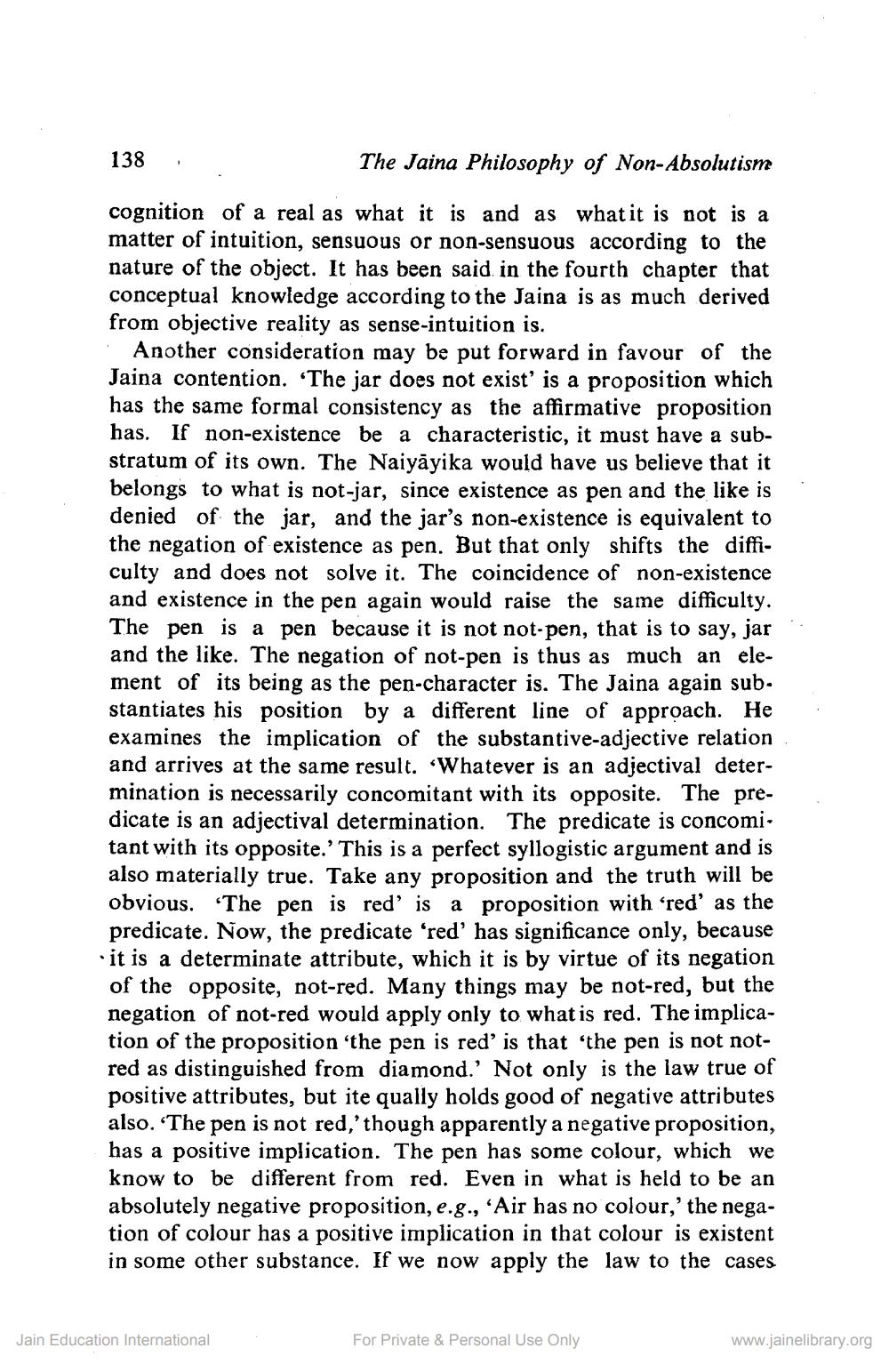________________
138
The Jaina Philosophy of Non-Absolutism
cognition of a real as what it is and as what it is not is a matter of intuition, sensuous or non-sensuous according to the nature of the object. It has been said in the fourth chapter that conceptual knowledge according to the Jaina is as much derived from objective reality as sense-intuition is.
Another consideration may be put forward in favour of the Jaina contention. 'The jar does not exist' is a proposition which has the same formal consistency as the affirmative proposition has. If non-existence be a characteristic, it must have a substratum of its own. The Naiyāyika would have us believe that it belongs to what is not-jar, since existence as pen and the like is denied of the jar, and the jar's non-existence is equivalent to the negation of existence as pen. But that only shifts the difficulty and does not solve it. The coincidence of non-existence and existence in the pen again would raise the same difficulty. The pen is a pen because it is not not-pen, that is to say, jar and the like. The negation of not-pen is thus as much an element of its being as the pen-character is. The Jaina again sub. stantiates his position by a different line of approach. He examines the implication of the substantive-adjective relation and arrives at the same result. Whatever is an adjectival determination is necessarily concomitant with its opposite. The predicate is an adjectival determination. The predicate is concomitant with its opposite.' This is a perfect syllogistic argument and is also materially true. Take any proposition and the truth will be obvious. The pen is red' is a proposition with 'red' as the predicate. Now, the predicate 'red' has significance only, because it is a determinate attribute, which it is by virtue of its negation of the opposite, not-red. Many things may be not-red, but the negation of not-red would apply only to what is red. The implication of the proposition 'the pen is red' is that 'the pen is not notred as distinguished from diamond.' Not only is the law true of positive attributes, but ite qually holds good of negative attributes also. 'The pen is not red,' though apparently a negative proposition, has a positive implication. The pen has some colour, which we know to be different from red. Even in what is held to be an absolutely negative proposition, e.g., 'Air has no colour,' the negation of colour has a positive implication in that colour is existent in some other substance. If we now apply the law to the cases
Jain Education International
For Private & Personal Use Only
www.jainelibrary.org




